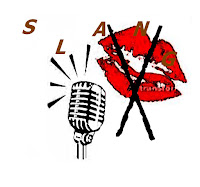 Slang is an essential and dynamic element of any language, including English. It reflects the constantly evolving nature of language, adapting to new cultural trends, social attitudes, and technological advancements. Slang enriches communication by allowing speakers to express themselves in more informal, playful, or creative ways. Its widespread use highlights its importance in everyday life.The slang words as it is defined by The Oxford English Dictionary as language of a highly colloquial type, considered as below the level of educated standard speech and consisting either of new words or of current words employed in some special sense. Slang is mainly the creation of those who despite or disregard convention and hanker after novelty of expression in the belief that it shows independence and originality.
Slang is an essential and dynamic element of any language, including English. It reflects the constantly evolving nature of language, adapting to new cultural trends, social attitudes, and technological advancements. Slang enriches communication by allowing speakers to express themselves in more informal, playful, or creative ways. Its widespread use highlights its importance in everyday life.The slang words as it is defined by The Oxford English Dictionary as language of a highly colloquial type, considered as below the level of educated standard speech and consisting either of new words or of current words employed in some special sense. Slang is mainly the creation of those who despite or disregard convention and hanker after novelty of expression in the belief that it shows independence and originality.1. Cultural Expression
Slang often originates from specific social groups, communities, or subcultures, providing a way to express identity and belonging. In English, different regions, age groups, and professions have developed their own unique slang terms, from youth slang like "lit" (meaning exciting or excellent) to internet slang like "LOL" (laugh out loud). These terms allow speakers to convey cultural nuances that standard language might not fully capture.2. Language Evolution
The use of slang reflects the natural evolution of language. As society changes, so does language, and slang plays a key role in this transformation. For example, in English, many words that were once considered slang have become part of mainstream vocabulary, such as "cool," "awesome," or "hangout." This demonstrates how slang terms can transition from being informal expressions to accepted parts of the language.3. Creativity and Playfulness
Slang allows for creativity in communication. English speakers often invent new slang words or repurpose existing ones to create fresh meanings. Phrases like "spill the tea" (to gossip) or "ghosting" (suddenly cutting off communication) showcase the playful and inventive nature of slang. This ability to evolve and adapt makes slang a vibrant aspect of any language. It is, however, very difficult to say at what point of time the slang terms of doubtful characters journey to words of respectable standing. Many a word has probably been current in popular speech for some years before the more fastidious academic mind consents to recognize it.4. Informality and Accessibility
Slang provides a way to communicate informally, breaking down barriers between people and making language more accessible. It’s commonly used in everyday conversations, text messages, and social media. While formal language can feel rigid, slang brings flexibility and ease to interactions. This is especially true in English, where slang has become a dominant mode of expression among young people and in digital communication.5. The Meaning of Words
The slang terms used in a language often reflect the values, concerns, and trends of the society in which they arise. The meaning of the words also as its asscending and decending values. In this way, slang offers insight into the cultural moment, revealing what is significant to the people who use it.We have seen already how slang words have, in the course of time, attained to respectability and been admitted to the language.Conclusion
Slang is not just a peripheral or informal aspect of language; it is integral to how people express themselves, connect with others, and reflect their cultural identity. In English, as in any language, slang continually evolves and adapts, playing a key role in keeping the language fresh, relevant, and alive. The English which look polished and refined are in the danger of loosing dignity if a social-cum-psychological interest has undergone a degeneration of meaning. It is the evolution of language. Possibly many others which now are regarded as slang or, at best, Americanisms or Indianism or so, in twenty five or thirty years, time will find their way into the vocabulary of the most correct authors and the most fastidious speakers.

Comments
Post a Comment
Drop any query, suggestion or comment here.